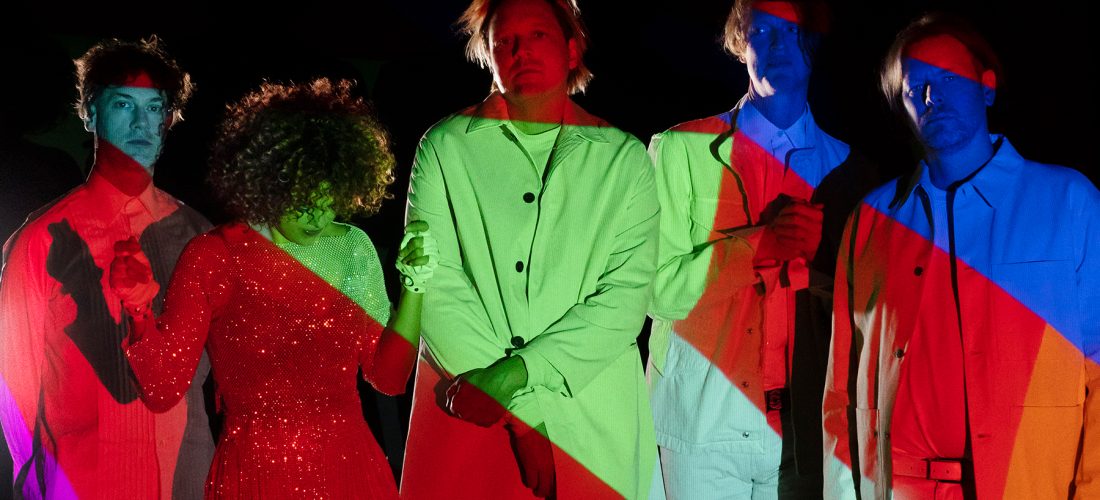Arcade Fire Are Back To Redeem Us With ‘We’
When Arcade Fire first came roaring out of Montreal with their firmament-strafing debut, Funeral, in 2004, they promised something new, exciting, and somewhat contradictory: heroic, culturally significant indie rock. A significance-deprived world ate it right up. This band didn’t just musically honor Springsteen, U2, and Bowie in the coming years, they became those artists’ peers and collaborators. Sometimes they’ve lived up to the high expectations they set for themselves, and sometimes they haven’t. Album’s like 2007’s Neon Bible and 2010’s The Suburbs were potent expressions of underdog rock gusto. 2013’s Reflektor engrossingly piloted their sound through two discs of arty disco, funk, and electro, suggesting anything from the Cure to Talking Heads. 2017’s Everything Now folded the dance textures back into the band’s rock roots, albeit somewhat less successfully (critics panned it with surprising uniformity). All the while, frontman Win Butler honed (some might say overworked) his main theme of alienation and emptiness in a world of instantaneous pleasure — doing for streaming-era overload what Springsteen had once done for working-class angst or U2 for humanist idealism.
In some ways, Arcade Fire’s sixth album feels very much like the sound of a band circling the wagons. Much of the music was written by Butler and Régine Chassagne, the married couple at the center of the band, without the rest of their bandmates, who could not work together due to Covid travel restrictions. Earlier this year, Win’s brother and co-founder Will Butler left the group. Attenuated community isn’t just a theme here; it’s a fact. When the singer observes, “It’s the age of doubt/I doubt we’ll figure it out,” on “Age of Anxiety I,” you might hear a whisper of autobiography mixed in with the socio-cultural reportage.
Despite its five-year gestation period, We chooses to default to comfortable places rather than push things forward. “Age of Anxiety I” begins as a tensely unfolding piano ballad and then opens into the kind of enveloping, heroically propulsive anthem that is Arcade Fire’s bread and butter. “Age of Anxiety II (Rabbit Hole)” opens similarly small-scale, then breaks into widening-gyre synth-rock. “End of the Empire I-IV” wraps its message of political/environmental/technological/you-name-it apocalypse in a grand, glum prog-glam processional à la early Bowie at his most maudlin. With producer Nigel Godrich (Radiohead, Beck, etc.) on hand, the sense of sonic space and detail can be dazzling, even if the ultimate effect of the music is pro forma.
Butler is in safe space here lyrically as well as musically, holding strong against the forces of late-capitalist malaise. “Fight the fever with TV/In the age where nobody sleeps/And the pills do nothing for me,” he laments. Anyone who made it all the way through Reflektor or Everything Now will be ready for Butler’s prognosis as to how we might snap out of our Netflix-induced stupor: “I unsubscribe!,” he sings in “End of the Empire I-IV” — adding, “Fuck season five!” in a flourish that’s so over-the-top, the sense of unencumbered self-parody is kind of sweet.
We is at its most endearing when the band gets more musically bright and tonally optimistic. The breakneck rock & roll of “The Lightning II” demands redemptive catharsis and delivers it, too. On “Unconditional II (Race and Religion),” Chassagne and Butler join together (with Peter Gabriel on backing vocals) over a disco beat to somehow convincingly turn the phrase “I’ll be your race and religion” into tinkly dancefloor elation. “Unconditional I (Lookout Kid)” offers useful advice to the couple’s young son over rolling folk-rock. The album’s closing title track hones in on romantic intimacy as a way to find cord-cutting freedom and sanity.
All of these gestures are deeply in earnest, and some of them even feel earned. But it’s hard not to hear We as the sound of a band hopefully setting things back in order, with better adventures to come.
